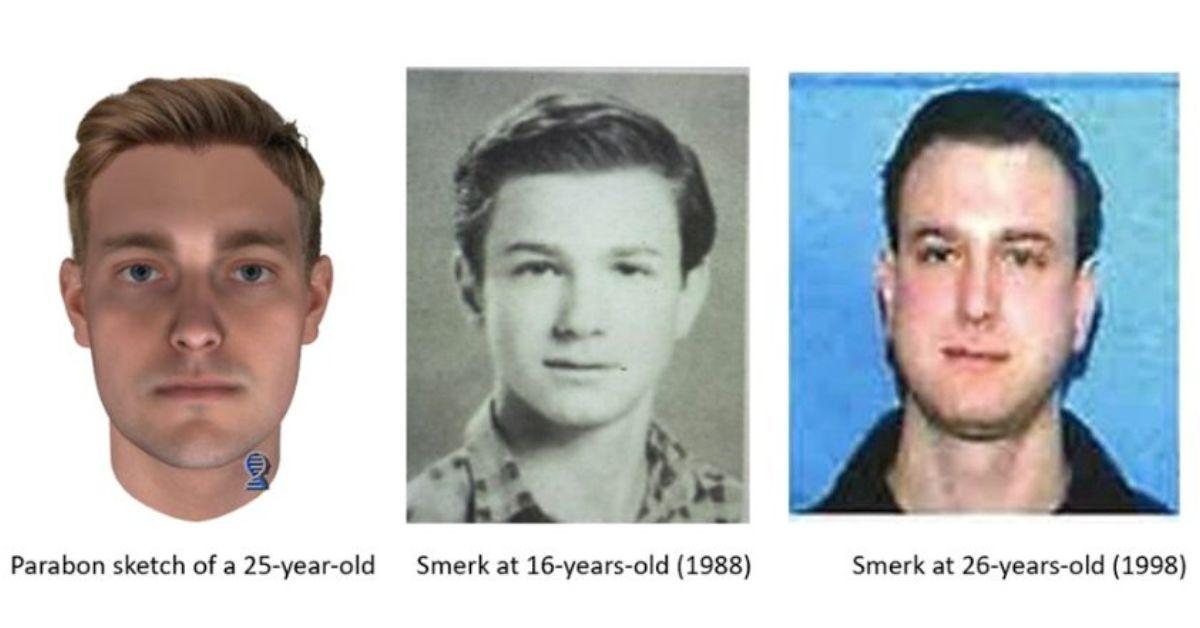‘Active Duty’ Army Worker Confessed to 1994 ‘Heinous’ Murder of Virginia Mother While Her 2-Year-Old Daughter Was Nearby: Police

Stephen Smerk confessed to the 1994 murder of Robin Lawrence.
Sept. 14 2023, Published 4:00 p.m. ET
A man in New York confessed to brutally stabbing a Virginia woman to death in 1994 and then leaving her toddler to fend for herself for days, RadarOnline.com has learned.
According to the Fairfax County Police Department, 51-year-old Stephen Smerk of Niskayuna, New York, was arrested after DNA evidence matched him to the murder of 37-year-old Robin Lawrence, who was stabbed multiple times at her Springfield, Virginia, home on Nov. 20, 1994, while her 2-year-old daughter was also home, as Front Page Detectives reported.

Robin Lawrence was stabbed multiple times inside her Virginia home in 1994.
Lawrence’s husband was away on a business trip and had not heard from his wife, so he asked a friend to go do a wellness check.
The friend found the mother’s bloodied body and the toddler dehydrated and crawling in soiled diapers, officials said.

The father was reportedly trying to convince the mother to allow him to have sex with his 2-year-old biological daughter, police said.
“As far as a motive, the typical motives that we normally associate with murders, disputes, domestic violence, none of that was at play here,” Fairfax County Police Chief Kevin Davis said. “He chose her seemingly randomly and it was a heinous, heinous scene.”
For nearly 30 years, the case went unsolved until a DNA test with the Parabon company led them to the suspect’s family tree in 2019, authorities said.

Lawrence's case went unsolved for almost 30 years, with her husband losing faith.
Smerk was an active-duty military personnel working in Fort Meyers at the time the murder took place.
Police went to Smerk’s home in New York to collect a DNA sample, which he agreed to.

Age progression photos of Stephan Smerk
However, before detectives could even leave the state, Smerk called them and confessed to Lawrence’s murder.
Smerk was charged with second-degree murder and is awaiting extradition to Virginia, officials said.
Never miss a story — sign up for the RadarOnline.com newsletter to get your daily dose of dope. Daily. Breaking. Celebrity news. All free.

Powered by RedCircle
In a statement, Lawrence’s husband, Ollie, said, “I was flabbergasted. You could have probably knocked me over with a feather. After all of this time, you have hope, but you also wonder: ‘Will they really find someone after 29 years?,’” the New York Post reported.


